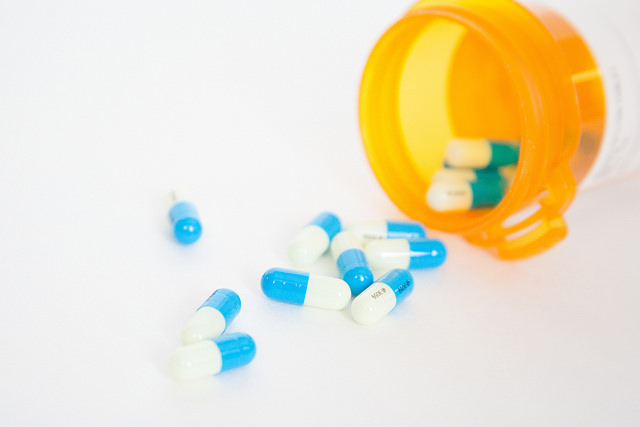This recent Ars Technica article showcases a textbook example of the perils of mixing profit with medicine. While the headline of the article is a bit dramatic, the underlying storyline is clear-cut: Pharmaceutical company makes expensive cancer drug (Imbruvica, generic name ibrutinib, at $133 per 140 mg pill, with a dosage of 140 mg to 560 mg or one to four pills). Doctors experiment and find out that one pill instead of the typical three is usually enough for effective treatment, which is important because of the side effects. Pharmaceutical company changes manufacturing to four different dosages but prices them all at three times what the old pill cost, effectively tripling the price for those taking just one pill.
If this sounds outrageous, you’re not alone in that opinion by any means. To a lot of people, including doctors, patients, and others (its mention in places like the People For Internet Responsibility mailing list has helped raise the awareness of the issue), this looks like the companies, Janssen Biotech and Pharmacyclics, Inc., went for a quick cash grab, possibly after noticing that they weren’t selling enough pills at the already obscene original price.
This edition of Cancer Letter, a newsletter about cancer research and treatment, decries at length this absurd change made by the manufacturer. It is very technical, making it a bit difficult to understand if you aren’t a doctor or nurse. The part that’s pretty easy to understand, though, starts with this quote:
It is worth comparing the prescribing information for ibrutinib with that of warfarin, which has been called “the most dangerous drug in America”.[10] Warfarin is formulated in nine strengths ranging from 1-10 mg daily. However, prescribers have complete discretion to select the dose strength most appropriate for each individual patient, and may choose to prescribe a 2 mg strength for a patient whose daily dosage requirement ranges from 4-6 mg daily. Prescribers also choose to use every other day dosing on occasion. Needless to say, it would be not be possible to safely use warfarin if the prescriber had to order a new tablet strength for each and every dosage change.
In contrast to warfarin, we do not believe that physicians and patients will be able to prescribe and self-administer ibrutinib in accordance with the prescribing instructions without the ability to prescribe 140 mg tablets regardless of the daily dosage. When dose reductions are required and substitute tablets are not readily available, physicians will need to choose between continuing the higher dose (a major safety risk) or interruption of the dosing for as long as two weeks, which could potentially impact efficacy.[9]
But what do the manufacturers care? It’s all about the money; if they cure a few people of cancer, that’s all the good PR they need, and it’s better for the bottom line to take in $400 per pill regardless of dose than $133 per 140 mg pill, at least while it’s legal to do so.
The problem with this is that it says the drug itself costs only a knowledgable amount and what the patient (or actually, in the US, the patient’s insurance company) is paying for is the manufacturing. I know the cost of actually making the pills didn’t triple overnight. If the manufacturers have to do this just to cover their costs, then they are doing it wrong, but I really don’t think that’s the case.
The Cancer Letter goes on to urge the Food and Drug Administration (FDA) to review the change being made to how this drug is being priced. I’m surprised that the manufacturers were allowed to change the pricing like this without getting prior FDA approval. If a pharmaceutical company can hike the price like this on a whim, that’s a huge gaping hole in our prescription drug regulations that needs to be plugged stat. I’m not holding my breath, though, given who we have in both Congress and the White House.

